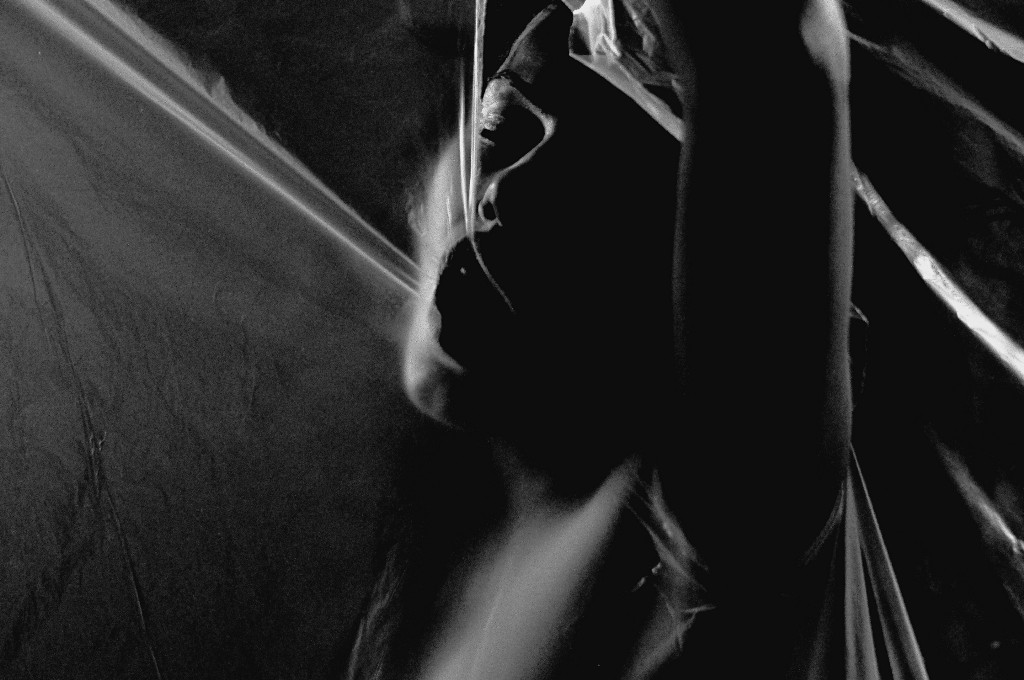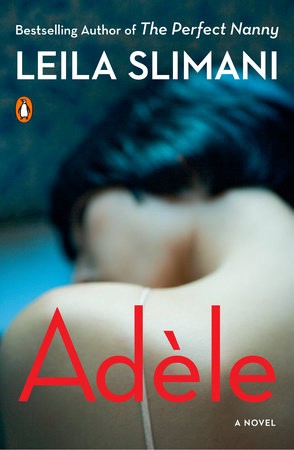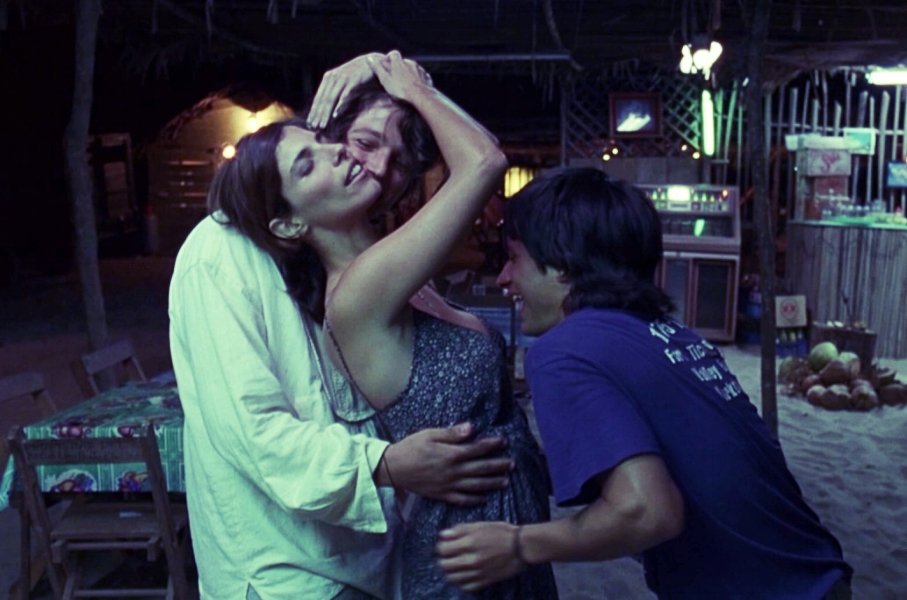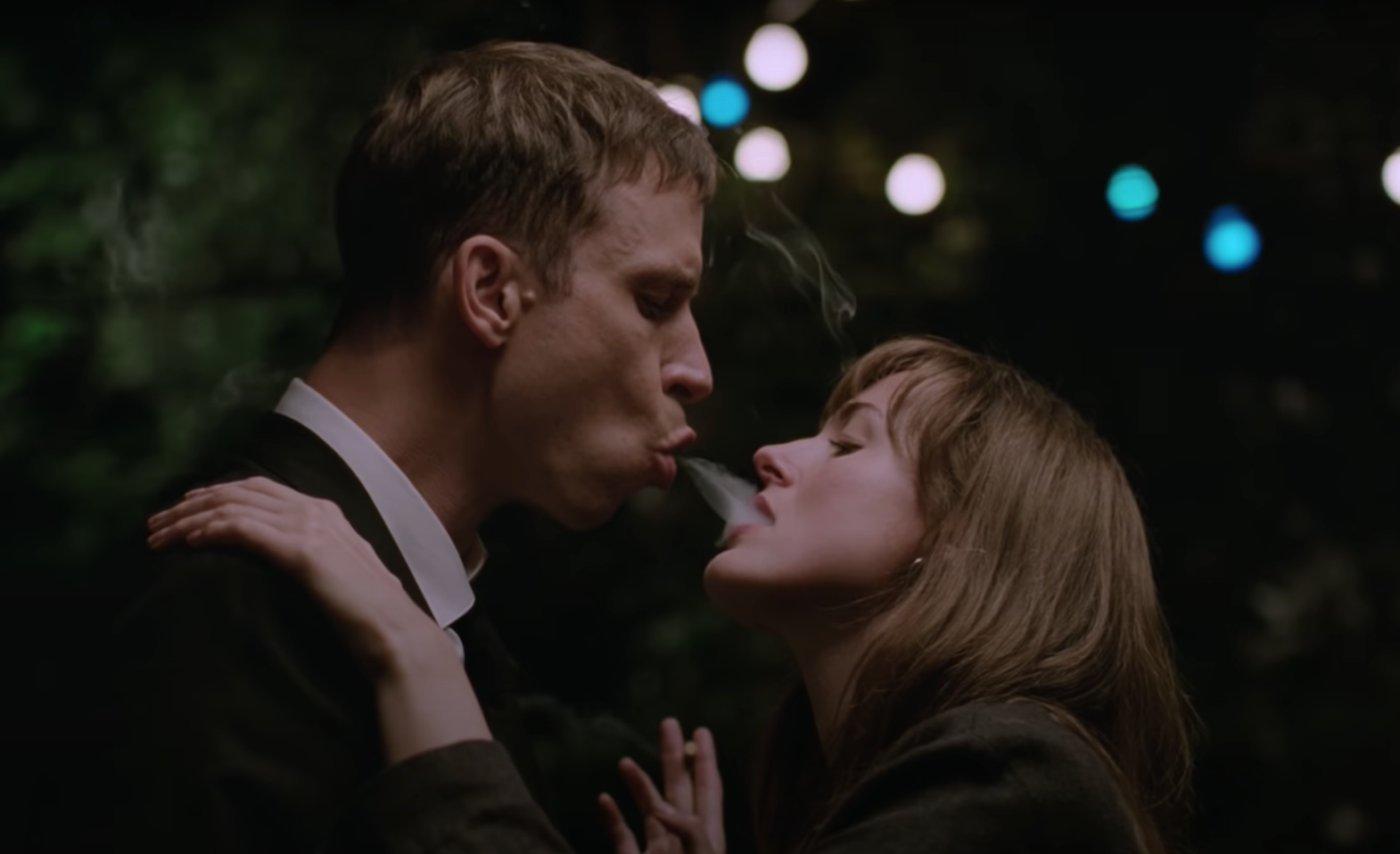interviews
In Leila Slimani’s “Adele,” Sex is Violent, Disappointing, and Compulsive
The author on how every society forces women to lie or to stay silent about their intimate lives

Before Leila Slimani became internationally famous for her bone-freezing literary thriller The Perfect Nanny, she wrote a novel whose darkness is much more mundane. In Dans le jardin de l’ogre (In the Garden of the Ogre), recently released in English as Adèle, Slimani explores the life of a Parisian journalist with a husband, a young child, and an all-consuming sex addiction. Adèle is a modern-day Madame Bovary, bored to tears by her life but unable to determine what, exactly, would make it better. Instead, she vanishes into a spiral of compulsive sex, alienation, and lies.
Slimani never tries to explain her heroine. She observes her with cool precision, cataloging her small victories and greater defeats: the loss of her one friend, the slow decay of her professional life, and, most dramatically, the moment in which she’s forced to confront her own addiction. In doing so, Slimani creates a nuanced, respectful portrait of a woman who has lost all respect for herself.
Last month, I spoke to Slimani about sexuality, addiction, and loneliness. She was in town for a reading, and we met in the bar at her hotel. As we talked, I frequently noticed other customers eavesdropping, trying to figure out what scandalous story we were telling, but our conversation — like Adèle, in the end — was not scandalous at all.
Lily Meyer: How did writing Adèle impact your views on sex?
Leila Slimani: Writing Adèle made me conscious of how intimately related violence and sexuality are for me. I remembered becoming a teenager, and my parents telling me to be careful. I came to understand that being a woman was dangerous, and then that there were predators: men who wanted me, and would force me to do things. So for me, discovering sexuality was also discovering violence, and discovering my vulnerability as a woman. It meant discovering that men saw me as weak and fragile, and might want to protect me or to be violent toward me.
That experience influenced Adèle, and afterwards, I was influenced by traveling to Morocco with the book. Women there told me that they, too, saw this link between sex and violence. They also told me that like Adèle, they were lying all the time. It was impossible for them to tell the truth about their sexuality, their intimacies, their true desires. I became very interested in how society — every society, not only Morocco — forces women to lie or to stay silent about their intimate lives.
LM: If you had to choose the book’s dominant theme or idea, what would it be?
LS: Loneliness. It’s about being a stranger in the world, having the feeling that you don’t belong and no one can understand you. It’s about silence, too. Adèle can’t speak out, express herself, or ask for help. Many women in the world feel that. We are so afraid that we’ll be judged or marginalized that we can’t say, “Help me,” or, “I have a problem.” Adèle wants so badly to belong, to be respected. She wears the mask of the perfect bourgeois woman and good mother. So it’s about appearances, too, and how we need to offer the world an image of perfection even when we’re destroyed inside.
For me, discovering sexuality was also discovering violence, and discovering my vulnerability as a woman.
LM: Adèle has no female friends, and feels compelled to alienate the women in her life. Do you think that comes from her loneliness, or is it a secondary feature of her existing loneliness?
LS: She absolutely has a problem with women. I don’t know where it comes from, but she wants women to like her. She’s like a little girl at school, waiting to be invited to play. She doesn’t want women to see her as a predator. There’s a chapter when she says she never wants to be the most beautiful woman; she’s too afraid of other women’s jealousy. She’s not scared of men, but she’s scared of women. She has the intuition that women will know who she is, and she doesn’t want to share this intimacy with anyone. I think her problem is that she feels more threatened by women than men because women will ask her intimate questions about herself.
LM: Adèle never wants to be the most beautiful woman in the room, and yet you write early in the novel that her only ambition is to be looked at. Does that ambition ever turn into true sexual desire?
LS: No, never. It’s a very abstract ambition, too. She could decide to be a muse, a model, to do something with this ambition, but it remains passive. She wants to be an object. She wants men to put her somewhere to be looked at, but this is the ambition of a non-ambition. It’s the ambition to not be ambitious.
LM: Not long after, you refer to her as the “mistress of the present tense,” but, of course, if you live only in the present tense, you’re the mistress of nothing. You’re entirely out of control. What was it like for you to write a character who can exert no control over her past or her future?
LS: It was very exciting to try to understand this woman who is so afraid of living, and who feels that the world is so boring, and trivial, and sad. She must have had a very idealistic vision of life when she was a teenager: Everything was going to be big! She was going to feel passion! Now, the past feels very heavy to her. It makes her feel guilty, and she doesn’t want to think about it. And of course, addicts don’t want to think about the future. For people who are addicts, only the present exists. Only the moment when you take a drink, not yesterday when you were drunk or tomorrow when you’ll be drunk again.
We are so afraid that we’ll be judged or marginalized that we can’t ask for help.
LM: Did you research addiction to write Adèle?
LS: I interviewed lots of psychiatrists and specialists in sex addiction. I asked one psychiatrist for a definition of addiction, and he said, “For me, it’s when you lose your freedom to say no.” I think that’s a perfect description of Adèle. She’s a woman who has lost the freedom to say no. When you think about it, losing that freedom is terrible, especially for a woman in her sex life. It’s so hard for women to learn to say no, and for men to learn how to hear it. Very often, women persuade ourselves that we have to have sex with a man because we spent two hours having a drink with him, or whatever it is. We come under such pressure in the realm of sexuality. I think it’s very important to have that freedom to say no.
LM: To what extent is Adèle modeled after Emma Bovary?
LS: Very much. In classic literature, this is an archetypal character: the married woman who is bored. I asked myself what this classical woman would do today, or who Madame Bovary would be today. That’s why Adèle marries a doctor, and why they move to Normandy, near where Madame Bovary is set.
LM: How important was her husband, Richard, to you? Did you spend a lot of time constructing his character, or could he have been anybody?
LS: In the beginning, he was a secondary character. He was just important for the narrative, so that somebody would discover she’s a liar. But then when he made that discovery, I got attached to him. I connected to his suffering. I asked myself, “How would you react if you loved somebody very, very much and then you realized that he had a secret life? That he was lying to you? That he was unhappy in his secret life, and something had gone very wrong?” After that, I wanted to explore Richard’s personality, and to understand which one of them is crazier. When you marry a woman like Adèle, you must know that something isn’t right. You can’t marry somebody like her without understanding the presence of darkness and strangeness, so he must be a bit crazy too. I wanted to explore that. I love Richard very much, and I loved writing about him: his relationship with sexuality, his relationship with his wife, an insistence that she’s sick and he can find a cure for her. He wants to rationalize everything.
I loved my son so much — but the day he was born, I looked in the mirror and thought, ‘Something in me is dead.’
LM: Is it fair to say that Richard and Adèle are total opposites, then?
LS: Absolutely. I think that’s why they are so attracted to each other, even if the attraction is weird. She needs rationality and security; he needs darkness. They are a very strange couple, but I do think their opposition is the reason they’re attracted to each other. But she’s not able to love. Love is the only way you can abandon yourself completely, and Adèle can’t do that. She can’t even do it as a mother. She has no idea how to touch her son, feed him, take him for a walk. Everything for her is difficult, tedious, complicated.
LM: How did writing about Adèle’s inability to fully love her son impact your writing about motherhood in The Perfect Nanny?
LS: When I wrote The Perfect Nanny, I never thought about Adèle, but now that both books are out in the United States, I’ve become conscious of how dark and weird motherhood is in Adèle. I wrote it just after I had my son, and I was struggling with the discovery that yes, I was happy to be a mother, I loved my son so much — but the day he was born, I looked in the mirror and thought, “Something in me is dead. There is a Leila who is dead forever and will never come back again.” I had to grieve, in a way. I think Adèle feels that. So many times, also, I felt like I didn’t know how to act with my son. Everyone tells you how natural motherhood will be, and when it doesn’t feel natural, you feel guilty. I tried to describe that guilt in Adèle, but to turn it into a problem.
LM: I wonder if the same goes for Adèle and sex. Women are often told that once we meet our husbands, our sex lives will be perfect, effortless, all that. Is Adèle struggling with disappointment over that message, too?
LS: Yes! She is disappointed by sex as she is disappointed by motherhood. The sex scenes in movies and TV shows are always so beautiful, you know? So much tenderness, so much passion. In real life, sex is much more trivial. There’s the sound of zippers, the smell of the socks you take off. You can’t get that smell into a movie, but it’s part of the reality of sex. I think so many women are disappointed by sex, especially after the first time. I think Adèle is like a teenager who desperately wants to find the transcendent sexual experience that everyone told her about, but that probably doesn’t exist.
LM: You’ve said that your editor once steered you away from writing thoughts, and toward writing action instead. How do you use action to create and access your characters?
LS: Writing through action is mostly about my relationship with my reader. When you accept the idea that you will only describe actions, you must accept that your reader is clever. He doesn’t need to know everything that’s happening in the mind of the character in order to figure out why she’s acting in a certain way. Also, I think Simone de Beauvoir and Jean-Paul Sartre are totally right when they say that a person is defined by her actions. Not what she thinks; not what she claims or proclaims; what she does. We speak a lot about ethnicity, religion, gender, all of that, but I don’t actually think those factors determine our identity. Our actions are our identity.
We speak a lot about ethnicity, religion, gender but I don’t actually think those factors determine our identity. Our actions are our identity.
LM: Is sex Adèle’s entire identity?
LS: I think Adèle has no identity. She doesn’t know who she is. That’s why she’s so aimless and lost. She knows nothing about herself. She has no idea what to fight for, what her values are, what social class she belongs to.
LM: Do you think of Adèle as a novel about social class?
LS: I wouldn’t say it’s about social class, but in all my books, I’m interested in the bourgeoisie. I’m interested in showing that even though the dominant culture claims the bourgeoisie is calm, polite, and moral, that claim is a lie. There’s horror and violence within the bourgeoisie, and I’m very interested in exposing that.









